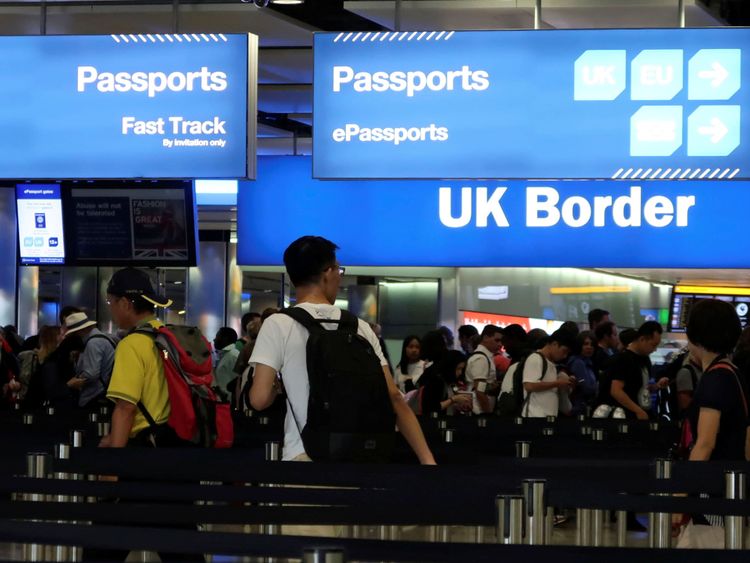[ad_1]
Companies are suffering from staff shortages because of a fall in EU nationals coming to the UK, according to new research.
Two in five employers (40%) said they have found it more difficult to fill vacancies during the last 12 months due to a combination of fewer and less suitable applicants.
The number of applicants per vacancy has fallen since last summer across all levels of skilled jobs, a survey of 2,000 employers by the Chartered Institute of Personnel and Development (CIPD), the professional body for HR staff, and recruitment firm Adecco found.
The institute said the shortages had forced more than half of organisations to raise starting salaries to recruit staff – and increase wages to retain existing employees.
The report said that, according to the latest official data, the number of EU-born workers in the UK increased by 7,000 between the first three months of 2017 and the same quarter this year.
This compares with 148,000 during the same period in 2016 to 2017.
The report said the 95% drop had exacerbated existing skills and labour pressures on firms, creating a “supply shock”.
The average number of people applying for a low-skilled vacancy has fallen from 24 to 20 in the last year, and from 19 to 15 for medium-skilled jobs.
Gerwyn Davies, of the CIPD, said the trend adds to recruitment challenges especially felt by sectors that rely on non-UK labour to fill roles.
“With skills and labour shortages set to worsen further against the backdrop of rising talk of a ‘no deal’ outcome with the EU, the need for the government to issue consistent, categorical assurances about the status of current and future EU citizens, whatever the outcome of the negotiations, is more important now than ever,” he said.
Alex Fleming, from Adecco, added: “With Brexit looming we’re seeing a talent shortage and a more competitive marketplace.
“In this candidate-short landscape the pressure is on employers to not only offer an attractive salary, but also additional benefits.
“In today’s environment employment benefits such as healthcare, a strong pension, flexible working and a collaborative and empowering work culture give employers a strong competitive advantage in attracting the best talent.”
A government spokesman said: “EU citizens make a huge contribution to our economy and we have been clear from the beginning of this process that we want these citizens and their families in the UK to be able to stay.
“After we leave the EU, the UK will continue to be the open country it has always been. We will have in place an immigration system that delivers control over who comes to the UK, but that welcomes the brightest and best who want to work hard and contribute.”
[ad_2]








